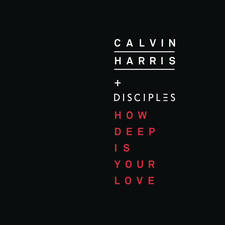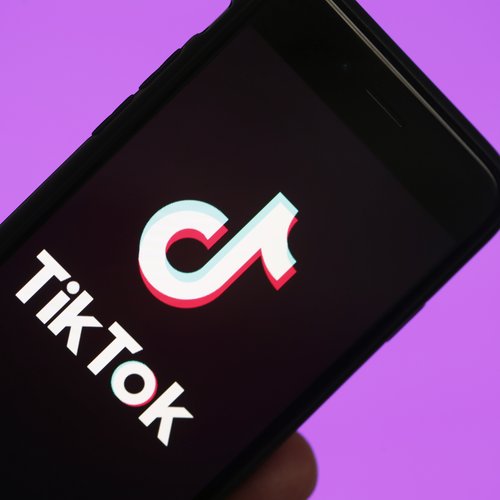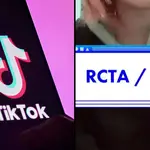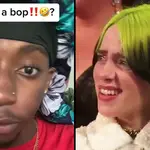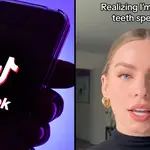Coming Out Chats: Shon Faye and Travis Alabanza in conversation
14 October 2021, 16:40
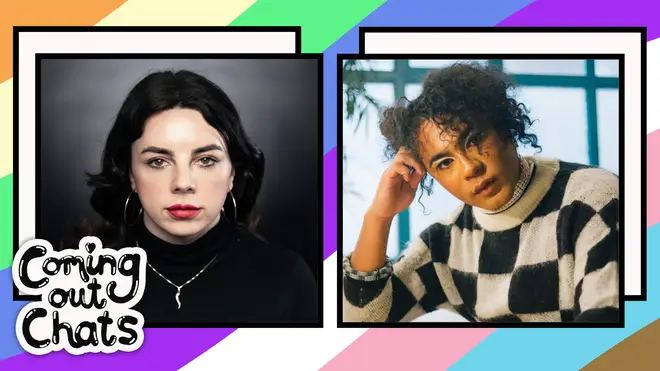
Shon Faye and Travis Alabanza share their stories on the Coming Out Chats podcast.
Welcome to Coming Out Chats, the podcast where our guests open up to each other about their coming out journeys. This week we're joined by Shon Faye and Travis Alabanza.
Shon Faye is a writer, presenter, editor and the host of the brilliant podcast Call Me Mother, which is a collection of conversations between Shon and LGBTQ+ elders who are trailblazers in their fields. Last month, Shon released her first book The Transgender Issue: An Argument for Justice, in which she calls for healthier and deeper conversations about trans lives. It was an instant Sunday Times Bestseller upon its release and is being lauded as a landmark book in the fight for trans liberation.
Joining Shon is her friend and fellow Bristolian, Travis Alabanza. Travis is an award winning writer, performer and theatre maker. Travis’ debut show Burgerz toured internationally to sold out shows around the world was listed on the Forbes 30 under 30 list for Arts and Culture. This year, Travis debuted their new show Overflow, which tells the story of a trans woman who is trapped in a bathroom as it floods. The show was recently nominated in four categories at The Off West End Theatre Awards.
In this episode, Shon and Travis talk about growing up in Bristol, their experiences at school, coming out online vs IRL, the pros and cons of labels, how the existence of trans people enriches the world and much more. Read the excerpt from their chat after the jump.
Listen and subscribe to Coming Out Chats below:
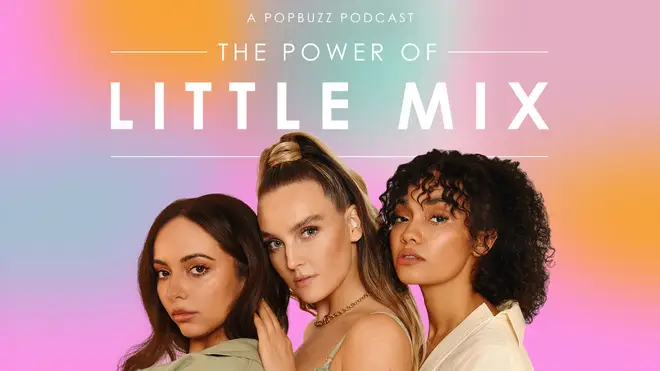
Travis: Now this next question makes me sound like I'm being big-headed asking you about my inserting in your book but I'm going to own that. In your book you actually put me at the beginning. That's right, bitch. I say in the book, "When I say trans, I also mean escape. I mean choice, I mean autonomy". Now, for the viewers and for my own ego, why did you choose this quote as the epigraph and what does it mean to you?
Shon: Right, so it's the epigraph which is a quote that goes…if you open a book you get the dedication to ‘my mum and my two cats’ and then the epigraph is often like a quote that sets a tone for the book, or it's thematic. That quote from Travis is at the front of mine. The reason I decided to choose that, [I was] thinking about how you encounter a book. When you pick it, you open it up and what you first see when you flick through a couple pages is that my book is called The Transgender Issue, right? That's a term that's used, usually by transphobes, around this discussion and it's kind of depersonalising, stripping us of humanity, making us about this political argument or debate that's going on in public. So, I am reappropriating that. And then the tagline is 'An Argument For Justice'. That all sounds quite full on it. This is a political book and considering that I want a cis readership and I want people to read this book who are confused, the middle Englanders who don't get it and they see all these articles in the press.
Coming Out Chats: NoahFinnce and Meet Me @ The Altar in conversation
What actually a lot of people are hearing about the word ‘trans’ all the time is ‘problem’, ‘burden’, ‘nuisance’, ‘lobby’. And what I liked about your quote, and what it sets the tone for, is that actually you describe trans in a really positive way. Everyone wants to be freer. Everyone wants autonomy, and wanting something better. I think a lot of people have never actually heard the word trans described as a positive thing that could exist for humanity. Trans people are used to being described as a sort of problem. That we can maybe we can give them treatment or we can give them surgery and then they'll disappear and it'll be fine. Or these are people who are struggling with their gender, or it must be awful to have gender dysphoria and feel like you're born in the wrong body. That's where a lot of the public discourse is at. Even if it's not hostile, it's a bit pitying. What I liked about that [quote], and why I wanted it at the front of the book, is because that quotation is not about that. [It's] about the idea of escape and freedom. My final sentence in the book is that ‘our existence enriches this world’. It's important to have that as the opener and closer. Fundamentally, what I want people to be left with is not that we're just this poor little oppressed group but, actually, what does our existence or what we’re arguing for potentially offer to you? Because I think we do offer things to people. Gender is deliberately a restrictive system designed to limit people's freedom. And so, a lot of people really don't like us because what we're often arguing for - if we're really on point - is more freedom. That's what it meant to me and why the epigraph went at the start of the book because I thought it was really important to set that tone before I get wading into the politics. Actually, trans people are a positive thing - newsflash - not just a thing you should tolerate but maybe something that actually is good.
Travis: Yeah, real. I'm so glad that the reasons why you picked it are similar to the reasons why I've written it. It's refreshing to know that a book is going to be out here but doesn't just argue for something as boring as our equality, or as boring as just our safety. [Something] that actually pushes forward which is beyond just our equality: us being free will benefit you to feel free too. I think that's where it’s so boring to click on to the current debate because it just misses the mark, in terms of this pitying, this cornering, this boxing us, as not a possibility, like an anecdote, and I think that the world's gonna need lots of anecdotes soon and trans people will be able to give insight into many different ways of shifting our thinking.
This conversation has been condensed and edited for clarity.
